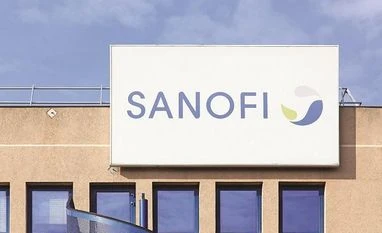Sanofi offers VRS to 800 staffers at India vaccine units amid review
The drugmaker is offering voluntary retirement scheme (VRS) to all its employees at two sites near Hyderabad
)
Explore Business Standard

Associate Sponsors
Co-sponsor
The drugmaker is offering voluntary retirement scheme (VRS) to all its employees at two sites near Hyderabad
)
By Leroy Leo
(Reuters) - French drugmaker Sanofi SA is reviewing operations at two of its vaccine making facilities in India and plans to let go of all employees at the plants, the company told Reuters, after it failed to win a UNICEF contract.
The drugmaker is offering voluntary retirement scheme (VRS) to all its employees at two sites near Hyderabad, a spokesperson for Sanofi's India unit told Reuters in an email.
About 800 employees could be affected by the decision, two sources familiar with the matter said. The sources did not want to be named as the matter is confidential.
Sanofi India declined to comment on the number of employees who would be offered VRS. The French company has over 5,000 employees in India, according to its website.
The two plants manufacture vaccines against hepatitis B, diphtheria and tetanus, and also have packaging facilities for insulin, but demand for their products has been hit by the pandemic as other drugmakers in India and globally have raised capacity.
While the spokesperson said "there is no plan to sell any asset at this stage", the sources said a sale could be a possibility later.
Sanofi plans to transfer the packaging of insulin and related injectible devices to another site and is currently evaluating which site will support it, the spokesperson said.
Sanofi owns the facilities through Sanofi Healthcare India Pvt Ltd, which was renamed from the erstwhile Shantha Biotechnics.
The French company acquired full stake in Shantha Biotechnics in various tranches between 2009 and 2013, with its initial acquisition of an 80% stake at a valuation of 37.7 billion rupees, which at that time was around $800 million.
The facilities, however, have struggled as Sanofi failed to win a UNICEF contract to supply Shan-5, a vaccine against diphtheria, tetanus, whooping cough, hepatitis B and influenza type B.
The vaccine came under regulatory scrutiny for quality issues over a decade ago, after the UN agency and the World Health Organization raised concerns.
"In particular, new pharmaceutical manufacturers have established themselves and increased the overall supply capacity for both vaccines and medicines," the spokesperson said.
"As a result, globally, Sanofi has had to adapt its strategy and portfolio to these trends."
The company said it will continue to fulfill all its current supply commitments to the Indian government.
(This story has been refiled to correct typo in headline)
(Reporting by Leroy Leo in Bengaluru; Editing by Saumyadeb Chakrabarty)
(Only the headline and picture of this report may have been reworked by the Business Standard staff; the rest of the content is auto-generated from a syndicated feed.)
First Published: Jan 30 2023 | 10:43 PM IST